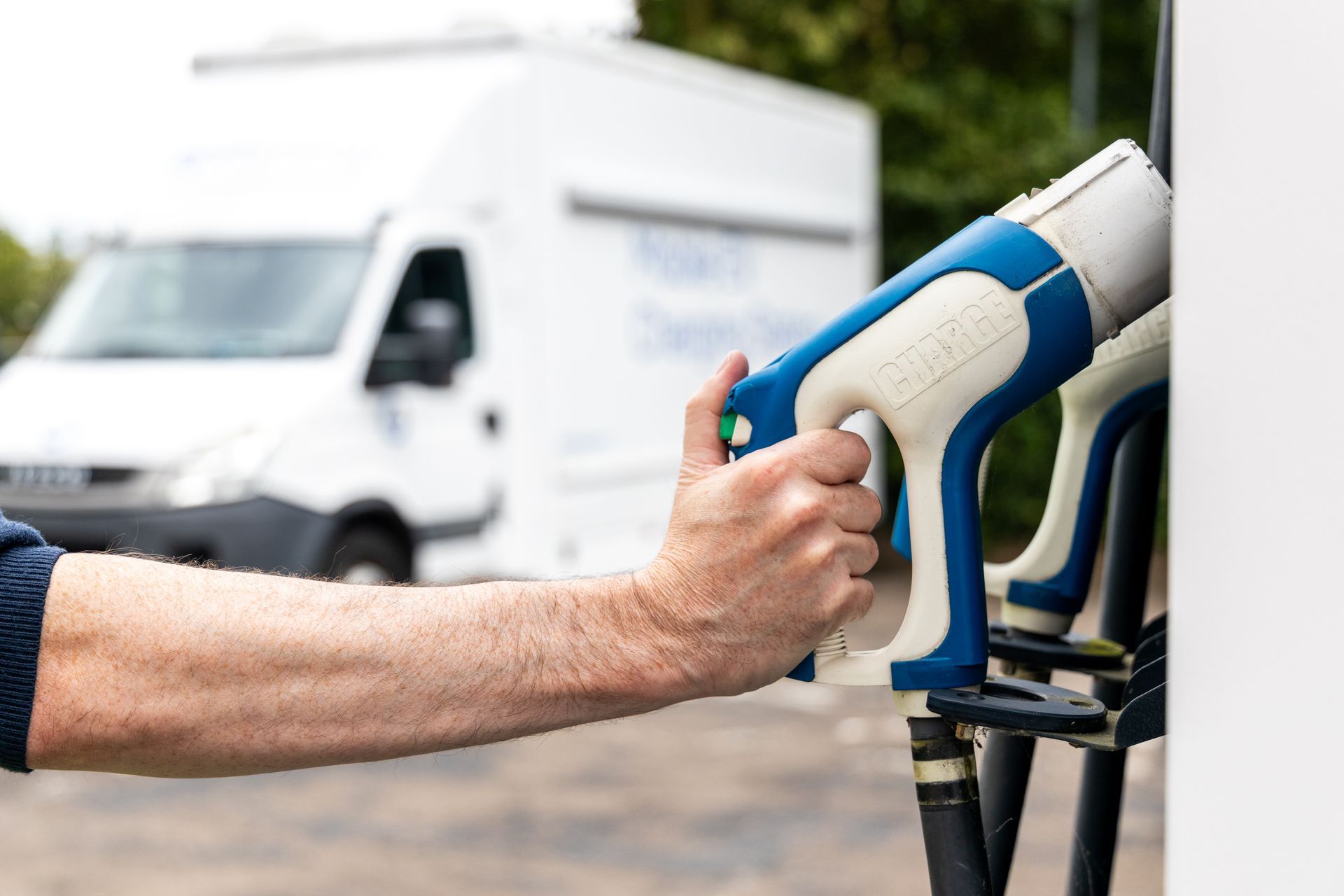GLOSSARY of everything EV
EV Charging Glossary: Key Terms Explained
EV Charging Glossary: Key Terms Explained
Here is a summary of the most common EV charging terms
EV Charging Glossary: Understanding Key Terms and Acronyms
- Electric Vehicle (EV): A vehicle that runs on electricity stored in its battery and is propelled by electric motors. EVs are central to reducing reliance on fossil fuel vehicles.
- Electric Vehicle Supply Equipment (EVSE): Also known as a charging station, EVSE is the infrastructure used to supply electricity to charge an electric vehicle's battery. What does EVSE mean?
- Charging Cable: A cable used to connect the EV to the charging station or power source, allowing electricity to flow from the source to the vehicle's battery.
- AC Charging: Alternating Current (AC) charging supplies electricity to an EV using an AC power source. This common method of EV charging is usually found at homes, workplaces, and public charging stations. What does AC charging mean?
- DC Charging: Direct Current (DC) charging is a faster charging method that supplies electricity directly to the vehicle's battery. DC fast charging stations, including ultra-rapid options, are ideal for quick energy replenishment.
- Kilowatt-Hour (kWh): A unit of energy measurement used to quantify the capacity of an EV battery and the amount of electricity consumed during charging. It directly impacts the kWh cost of charging an EV.
- Charge Point: A physical location where EVs can connect to a charging station to replenish their battery power.
- Level 1 Charging (USA): The slowest charging level, typically done using a standard household electrical outlet (120 volts in North America). Known as 'granny chargers,' these chargers usually have a power output of less than 3kW, taking over 20 hours for a full charge.
- Level 2 or AC Charging: A faster charging level requiring a dedicated EVSE and a 240-volt power supply. Level 2 chargers provide power between 7 and 22kW, although 22kW units require a three-phase electrical supply. Learn about EV charging terminology.
- Level 3 Charging: Also known as DC Rapid and Ultra Rapid charging, Level 3 provides high-power DC electricity directly to the EV battery, significantly reducing charging times. ZPN’s chargers store energy during off-peak hours or from renewable sources to deliver full power on demand.
- Charge Port: The location on an electric vehicle where the charging cable is connected to charge the battery.
- Plug-in Hybrid Electric Vehicle (PHEV): A type of electric vehicle that combines an internal combustion engine with an electric motor and battery. PHEVs can be charged from an external power source and also use gasoline, bridging the gap between traditional fossil cars and EVs.
- Battery Management System (BMS): A system that monitors and manages the charging and discharging of the EV battery. It ensures safe and efficient operation, temperature control, and protection against overcharging or discharging.
- State of Charge (SoC): A measure of the amount of energy remaining in the EV battery, represented as a percentage. It’s essential for EV range planning.
- Demand Response: A system allowing utilities to adjust the charging speed of multiple EVs based on grid conditions and electricity demand. This feature can incentivize EV owners to charge during off-peak hours.
- Smart Charging: Advanced technology and software that optimize EV charging based on factors like energy prices, grid demand, and charging station availability. Smart charging maximizes efficiency and minimizes costs.
- Vehicle-to-Grid (V2G): A bidirectional energy flow technology enabling EVs to discharge power back to the grid during high demand or for grid stabilization.
- Plug Types: Various connectors physically connect the charging cable to the EV. Common plug types include Type 1 (J1772), Type 2 (Mennekes), CHAdeMO, CCS (Combined Charging System), and Tesla Supercharger.
- RFID: Radio-Frequency Identification technology used to authenticate and authorize access to EV charging stations. Users typically carry an RFID card or key fob to initiate charging.
- kWh Cost: The electricity cost per kilowatt-hour consumed during the charging process, impacting the overall financial cost of replenishing an EV.
- Mobile EV Charging UK: Portable EV charging services offering on-demand charging solutions in various locations. Ideal for emergency situations or off-grid use.
- EV Mobile Charging Unit: A portable charging device, often used by recovery trucks or vans, to provide EVs with an energy boost in remote or off-grid environments. Explore mobile EV charging services.
- Granny Chargers: Informal term for slow Level 1 chargers using standard household outlets, typically providing less than 3kW of power.
- Charging Telemetry: Data reporting on the state of a charger or vehicle, helping optimize performance and monitor charging sessions.
- CSMS (Charge Station Management System): Software designed to manage and monitor charge points efficiently, providing data analytics and user management tools.








